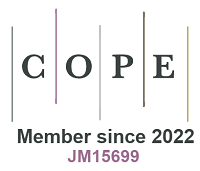
Beijing National Laboratory for Molecular Sciences, Key Laboratory of Colloid and Interface and Thermodynamics, Institute of Chemistry, Chinese Academy of Sciences, Beijing, China.
HomePage
Bio
Prof. Qinggong Zhu is currently a professor at the Institute of Chemistry, Chinese Academy of Sciences.
Dr. Qinggong Zhu received her doctor degree in Chemistry from the University Sains Malaysia in 2013. In 2014, she joined the research team led by Academician Buxing Han and carried out systematic research on electrochemistry and green chemistry. She is currently a Professor at the Institute of Chemistry, Chinese Academy of Science. She held the project supported by National Natural Science Foundation of China: Outstanding Youth Science Foundation in 2020.
In the past 5 years, she has published more than 30 papers in journals such as Nat. Commun., Angew. Chem. Int. Ed., The Innovation, Chem. Sci., etc. These results were supported by the National Natural Science Foundation of China Youth Foundation, General Program, Outstanding Youth Science Foundation, and the key special project of "Frontier Research of Large Scientific Installations". Many of the findings have been reported by the Ministry of Science and Technology of the People's Republic of China, People's Daily Online, ChemistryViews, Chinese Journal of Physical Chemistry and other websites and journals.
Her research interest lies in the design of highly efficiency electrocatalysts, systematic study on the efficient electrocatalytic conversion of CO2 to high value-added chemicals, and proposing new strategies for efficient CO2 electroreduction in green systems. In recent years, a series of catalyst-electrolyte systems have been constructed for efficient electrocatalytic conversion of CO2 to produce important chemicals such as formic acid, methanol, methane, syngas gas, ethylene, acetic acid, ethanol and multi-carbon products. It has formed characteristics and advantages in the organic combination of electrolyte and catalytic material design, and the development of new methods for efficient electrocatalytic conversion of CO2. These results have laid the scientific foundation for developing technical for the electrochemical conversion of CO2 to important chemicals.
Dr. Qinggong Zhu received her doctor degree in Chemistry from the University Sains Malaysia in 2013. In 2014, she joined the research team led by Academician Buxing Han and carried out systematic research on electrochemistry and green chemistry. She is currently a Professor at the Institute of Chemistry, Chinese Academy of Science. She held the project supported by National Natural Science Foundation of China: Outstanding Youth Science Foundation in 2020.
In the past 5 years, she has published more than 30 papers in journals such as Nat. Commun., Angew. Chem. Int. Ed., The Innovation, Chem. Sci., etc. These results were supported by the National Natural Science Foundation of China Youth Foundation, General Program, Outstanding Youth Science Foundation, and the key special project of "Frontier Research of Large Scientific Installations". Many of the findings have been reported by the Ministry of Science and Technology of the People's Republic of China, People's Daily Online, ChemistryViews, Chinese Journal of Physical Chemistry and other websites and journals.
Her research interest lies in the design of highly efficiency electrocatalysts, systematic study on the efficient electrocatalytic conversion of CO2 to high value-added chemicals, and proposing new strategies for efficient CO2 electroreduction in green systems. In recent years, a series of catalyst-electrolyte systems have been constructed for efficient electrocatalytic conversion of CO2 to produce important chemicals such as formic acid, methanol, methane, syngas gas, ethylene, acetic acid, ethanol and multi-carbon products. It has formed characteristics and advantages in the organic combination of electrolyte and catalytic material design, and the development of new methods for efficient electrocatalytic conversion of CO2. These results have laid the scientific foundation for developing technical for the electrochemical conversion of CO2 to important chemicals.
Research Interests
electrocatalysis, CO2 conversion, electrocatalytic material preparation, electroorganic synthesis, green chemistry.
Contributions:









